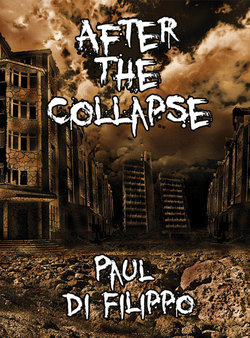Читать книгу After the Collapse - Paul Di Filippo - Страница 5
На сайте Литреса книга снята с продажи.
ОглавлениеINTRODUCTION
Life goes on.
Along with the sentence “This too shall pass,” the line above is simultaneously the most pessimistic formulation of the way the universe works, and the most optimistic one. On the one hand, “Life goes on” indicates that we are capable of picking ourselves up after any tragedy and continuing with some kind of meaningful and useful existence, no matter how damaged we might be from our experiences. There’s always tomorrow for dreams to come true. On the other hand, “Life goes on” does seem in our blackest hours to imply one dreary, torturous day after another, with no surcease till death, and an uncaring response from a heartless creation.
I tend, in my writings and personal life, to favor the upbeat interpretation of the motto. We can recover from anything short of death, finding hope and victory and love in the ruins. That’s the message these stories are meant to convey, beneath what I hope are some surface thrills and excitement and neat ideas.
As the Buddhists tell us, life is continuously collapsing from one millisecond to the next. That’s just the nature of creation. Stability and consistency are illusions. All is a froth of chaotic activity below the Planck level. The universe is like a human being walking: managing to move forward through a series of barely averted falls.
So please take heart by also recalling the words of some western sages, Steely Dan: “Any major dude with half a heart surely will tell you my friend/Any minor world that breaks apart falls together again/When the demon is at your door/In the morning it won’t be there no more/Any major dude will tell you.”
—Paul Di Filippo
Providence, Rhode Island
11 July 2011
